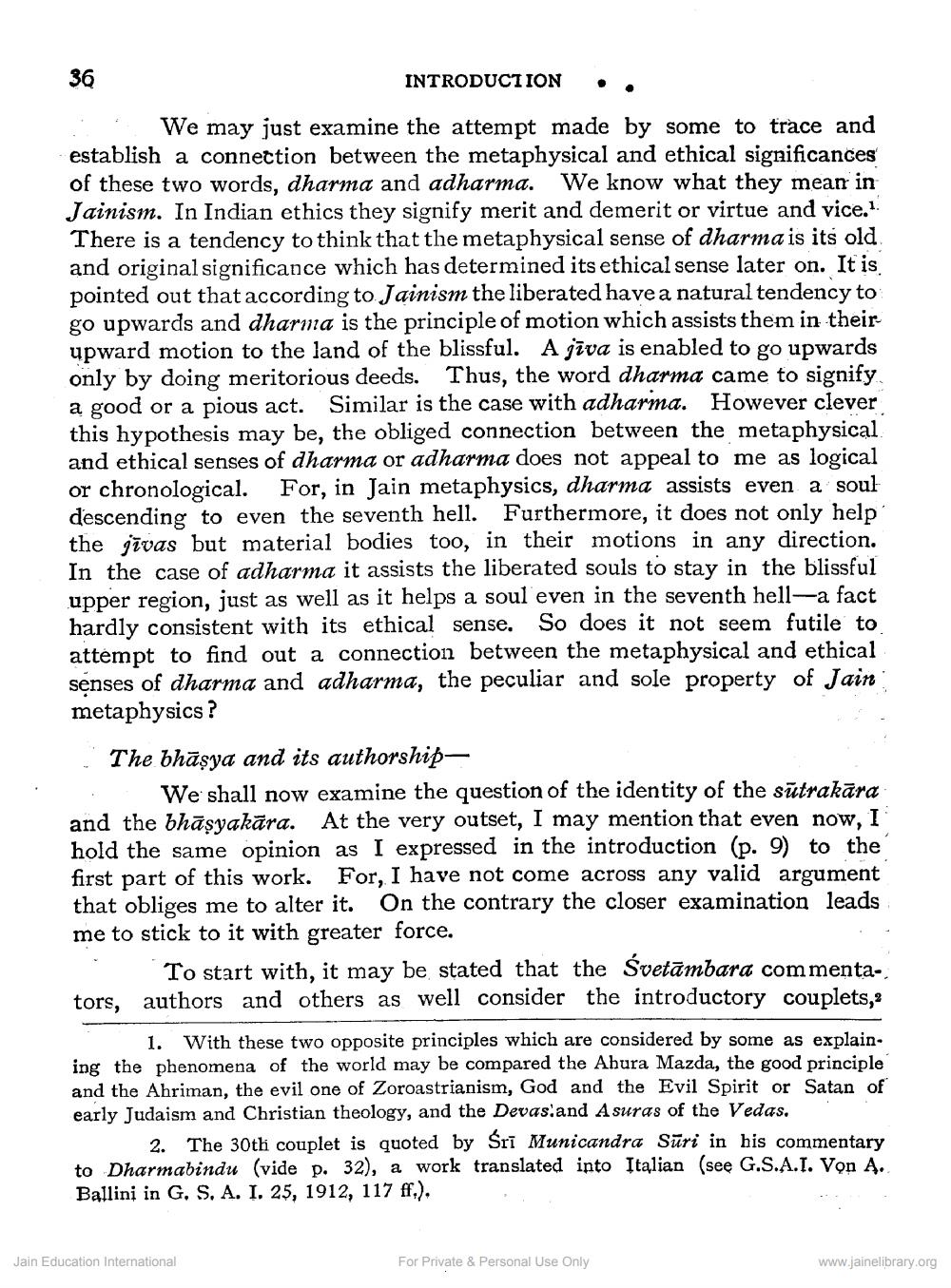________________
36
INTRODUCTION
We may just examine the attempt made by some to trace and establish a connection between the metaphysical and ethical significances of these two words, dharma and adharma. We know what they mean in Jainism. In Indian ethics they signify merit and demerit or virtue and vice.1. There is a tendency to think that the metaphysical sense of dharma is its old and original significance which has determined its ethical sense later on. It is pointed out that according to Jainism the liberated have a natural tendency to go upwards and dharma is the principle of motion which assists them in their upward motion to the land of the blissful. A jīva is enabled to go upwards only by doing meritorious deeds. Thus, the word dharma came to signify a good or a pious act. Similar is the case with adharma. However clever this hypothesis may be, the obliged connection between the metaphysical and ethical senses of dharma or adharma does not appeal to me as logical or chronological. For, in Jain metaphysics, dharma assists even a soul descending to even the seventh hell. Furthermore, it does not only help the jīvas but material bodies too, in their motions in any direction. In the case of adharma it assists the liberated souls to stay in the blissful upper region, just as well as it helps a soul even in the seventh hell--a fact hardly consistent with its ethical sense. So does it not seem futile to attempt to find out a connection between the metaphysical and ethical senses of dharma and adharma, the peculiar and sole property of Jain metaphysics ?
The bhāşya and its authorship
We shall now examine the question of the identity of the sūtrakāra and the bhāsyakāra. At the very outset, I may mention that even now, I hold the same opinion as I expressed in the introduction (p. 9) to the first part of this work. For, I have not come across any valid argument that obliges me to alter it. On the contrary the closer examination leads me to stick to it with greater force.
To start with, it may be stated that the śvetāmbara com mentators, authors and others as well consider the introductory couplets,
1. With these two opposite principles which are considered by some as explaining the phenomena of the world may be compared the Ahura Mazda, the good principle and the Ahriman, the evil one of Zoroastrianism, God and the Evil Spirit or Satan of early Judaism and Christian theology, and the Devas.and Asuras of the Vedas.
2. The 30thi couplet is quoted by Sri Municandra Sūri in his commentary to Dharmabindu (vide p. 32), a work translated into Italian (see G.S.A.T. Von A. Ballini in G. S. A. I. 25, 1912, 117 ff.).
Jain Education International
For Private & Personal Use Only
www.jainelibrary.org




